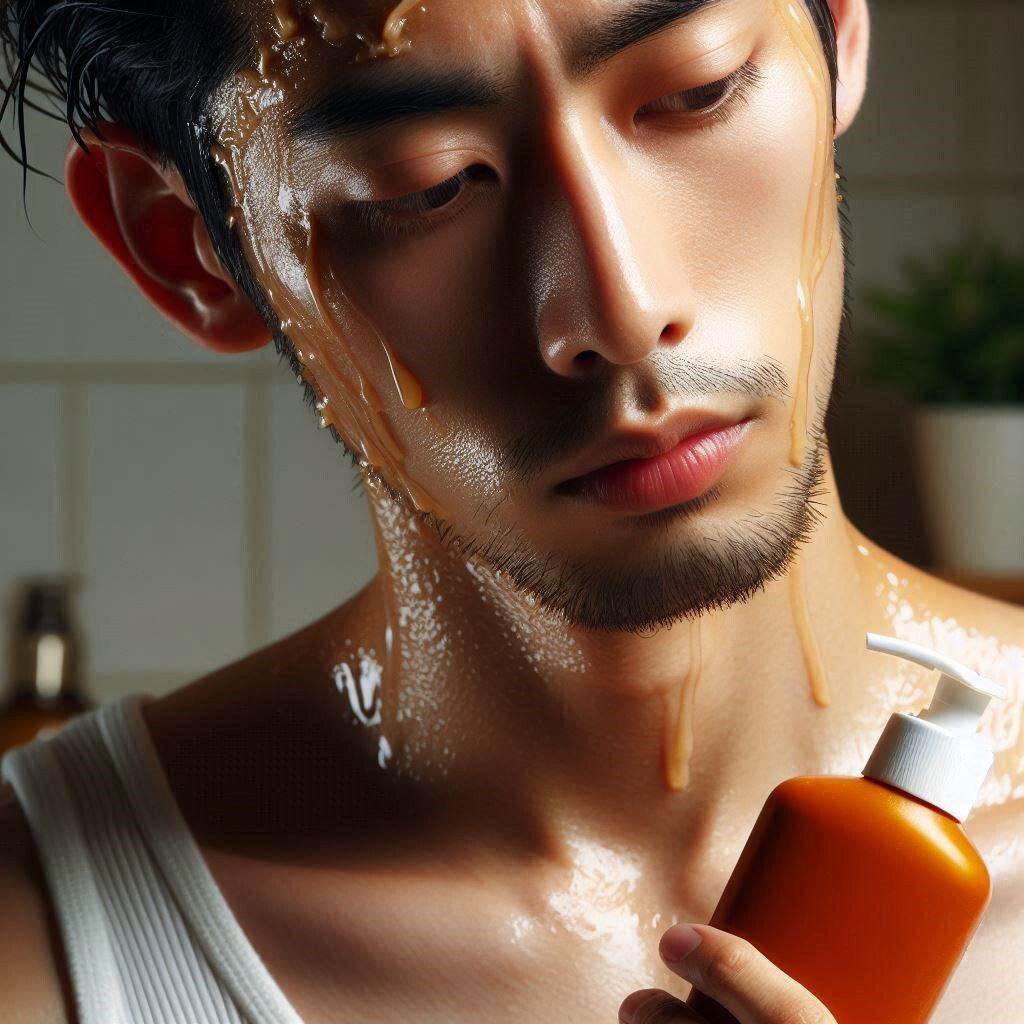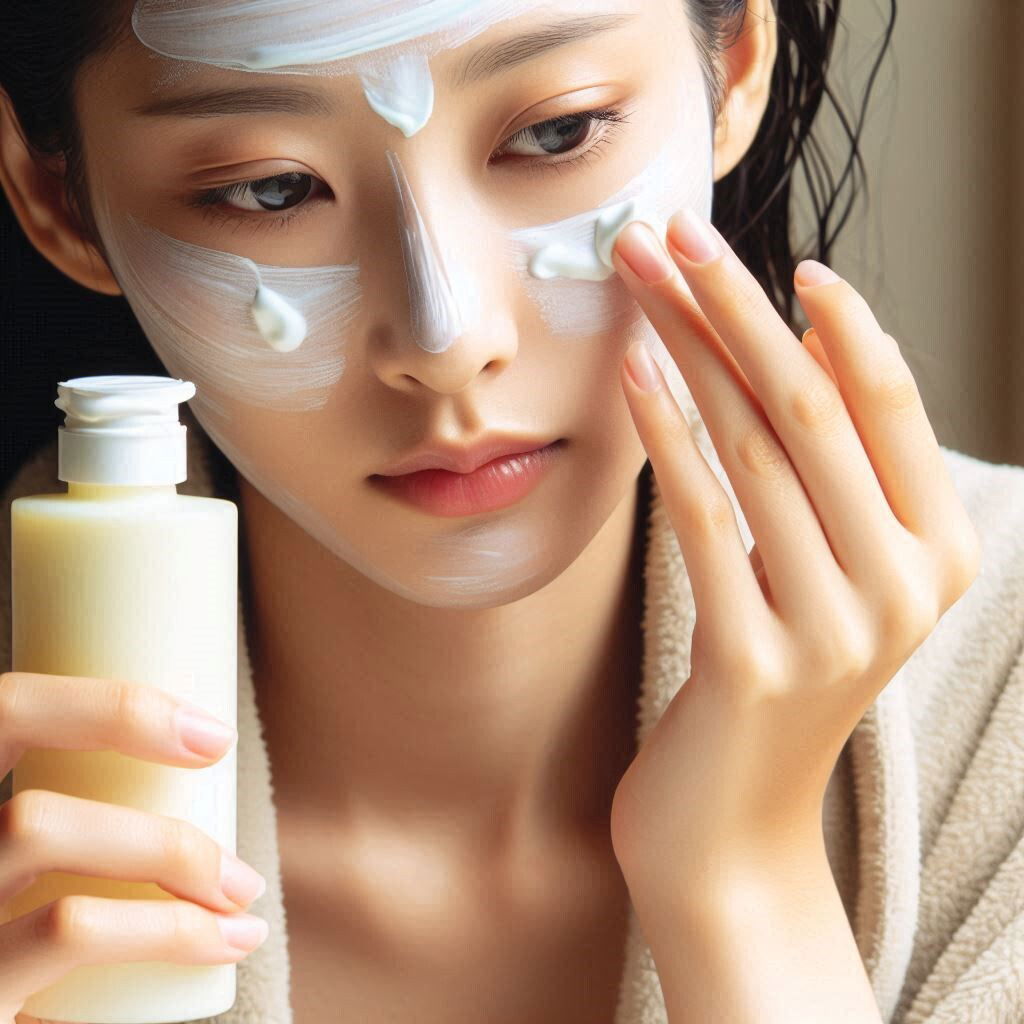Ultimate Guide to Choosing the Best Cream for Oily Skin

Introduction
Keeping your skin as naturally oily as it is can be, it comes with a cost and can be managed with the right skin care routine. This donates why we’ve made this guide to finding the best cream for oily skin and available for help with health information regarding the use of oily skin creams, benefits, Ultimate care and solution, causes of oily skin, types of oily skin, Compatible product with the skin, FAQs, Special care, and tips. Whether you are struggling with oily skin, breakouts, large pore, and excess shine, this guide will help your choice of which oily deceleration cream to make.
The Causes of Oily Skin.
This is a case whereby skin is from the accumulation of oil in the sebaceous glands, which produces sebum, and an oil-like substance that occurs naturally as skin protection from within capable of protecting, moisturizing, and conditioning of the skin. It can exceed and go over the skin surface when overproduced.
Moisturizing Oily Skin
There are certain known believes for those with an oily skin type to avoid facing a moisturizer and keep it away from facial skin so to minimize the chance of more oil generation and to avoid the skin been stair. This belief is wrong to the skin and it will cause a short or long term permanent physical effect to the skin in that the skin will still go ahead and produce more Sebum if it is not been moisturized. So, it important to moisturize the skin including the oily skin to avoid more damage and shine to the skin face. Many people that have oily skin, the Sebum that is produced accumulates and locked up in the pores skin, which makes them belief that oils are the major problem of oily-skinned.
List Of Ingredients to Look for in An Oily Skin Cream
Salicylic acid: It is a beta-hydroxy acid that penetrates the pores and helps to remove excess oil and dead skin cells. It is excellent in preventing and treating acne, which is a common concern for people with oily skin.
Niacinamide: Niacinamide, also known as vitamin B3, is a powerful ingredient that reduces inflammation, shrinks pores, and controls oil production. It is suitable for all skin types, especially for those with oily and acne-prone skin.
Hyaluronic acid: It is a hydrating ingredient that can hold up to 1000 times its weight in water. Oily skin still needs moisture, but hydration without adding oil is a key.
Clay: Clay ingredients, such as kaolin and bentonite, are known for absorption and oil-controlling properties. They help mattify the skin and eliminate greasiness.
List of the best creams for oily skin
Oil-Free Mattifying Moisturizer: This option was designed for oily skin. It features Sebulyse technology to target oil, and it doesn’t leave a greasy layer on the skin, but provides a matte result. One of the ingredients is salicylic acid, which makes it suitable for skin that is prone to imperfections by keeping pores visibly clear.
Neutrogena Hydro Boost Water Gel: This cream-gel formula is very lightweight. It keeps the water inside the skin and advertises itself to be non-comedogenic.
CeraVe PM Facial Moisturizing Lotion: It is a night cream that combines the effects of niacinamide, hyaluronic acid, and ceramides. It helps to restore the protective skin barrier, which is important because oily skin can get sensitized, red, or inflamed.
Origins Zero Oil Moisture with Saw Palmetto and Mint: This oil-free moisturizer includes ingredients such as saw palmetto and mint, which help control oil and make the skin matte.
Bioderma Sébium Mat Control: This cream is not only designed to mattify your skin but also provides hydration for a long time. It also regulates sebum production and refines your skin’s texture, suitable for an oily and combination skin type.
Incompatible Products for Oily Skin
- Alkaline Bar Soaps
- Cleansers with oils
- Body lotions
- Skin oils
How to Use Creams for Oily Skin
Cleanse: Use a gentle cleanser to strip away excess oil and impurities from your skin.
Tone: Use a toner with witch hazel or salicylic acid to control oil secretion and prepare your skin for further steps.
Treat: Use any serums if you suffer from acne or products for oil control.
Moisturize: Finish your routine with a non-comedogenic, oil-free moisturizer suitable for your oily skin type.
Protect: In the morning, complete your routine with a broad-spectrum sunscreen to shield your skin from UV exposure.
Tips
Avoid Over-Washing: People with oily skin should not wash their faces more than twice a day. Otherwise, your skin will be deprived of its natural oils and will produce more oil.
Oil-Free: Make sure to use oil-free and non-comedogenic products to reduce excessive oil on your skin.
Blotting Papers: This product will help you to remove the extra shine from your skin throughout the day without ruining your makeup.
Regular Exfoliation: Make sure to exfoliate your skin 1-2 times a week to remove dead skin cells from your skin and prevent clogged pores.
FAQs.
Q1. Does sugar cause an increase in oil production?
Sugar does not cause excess oil on the face, but excessive intake of sugar can cause oil production.
Q2. Can oily skin be dehydrated?
Yes, oily skin can be dehydrated. Dehydration occurs when your skin needs water, and in this case, your skin becomes dry. At the same time, oiliness is the result of an increased sebum production on your skin. To rehydrate your skin, you should use hydrating, oil-free products.
Q3. How often should I moisturize oily skin?
You should moisturize your oily skin twice a day: in the morning and at night. Use a lightweight non-comedogenic, oil-free moisturizer to balance and hydrate your skin.
Q4. Can I apply oil-based products on oily skin?
Depending on your skin type, it is probably better to avoid heavy oil-based products on oily skin. Although sometimes facial oils can benefit your skin, choose non-comedogenic oils such as jojoba or argan oil, as they will not clog your pores. Those who are not fans of moisturizers should also stick to facial oils to hydrate their skin.
Q5. What ingredients should I avoid in creams for oily skin?
If you have oily skin, you should avoid using mineral oil, lanolin, and other petroleum-based heavy products that can clog your pores. Moreover, alcohol-based products may be tempting to those who want to reduce oil on their faces. However, they will actually dry out your skin, so your body will produce more oil to even things out.
Q6. Is sunscreen essential for oily skin?
Absolutely, yes. Sunscreen is non-negotiable for everyone, regardless of skin type. Of course, those with oily skin should opt for a lightweight, oil-free, or gel-based sunscreen to avoid producing even more shine at the beginning of the day. If exposed to sunlight for a longer period, consider reapplying your sunscreen a couple of times.
Conclusion
There are various creams for oily skin, most of which will produce the desired effect if applied correctly. Therefore, there are several ways to maintain a healthy glow without overproducing oil or sweating too much. Remember to opt for non-comedogenic, oil-free products, develop a scheduled skincare routine, and avoid makeup with similar properties. However, it is also important to live a healthy lifestyle, feed your skin from the inside, and address the main issues if necessary.
